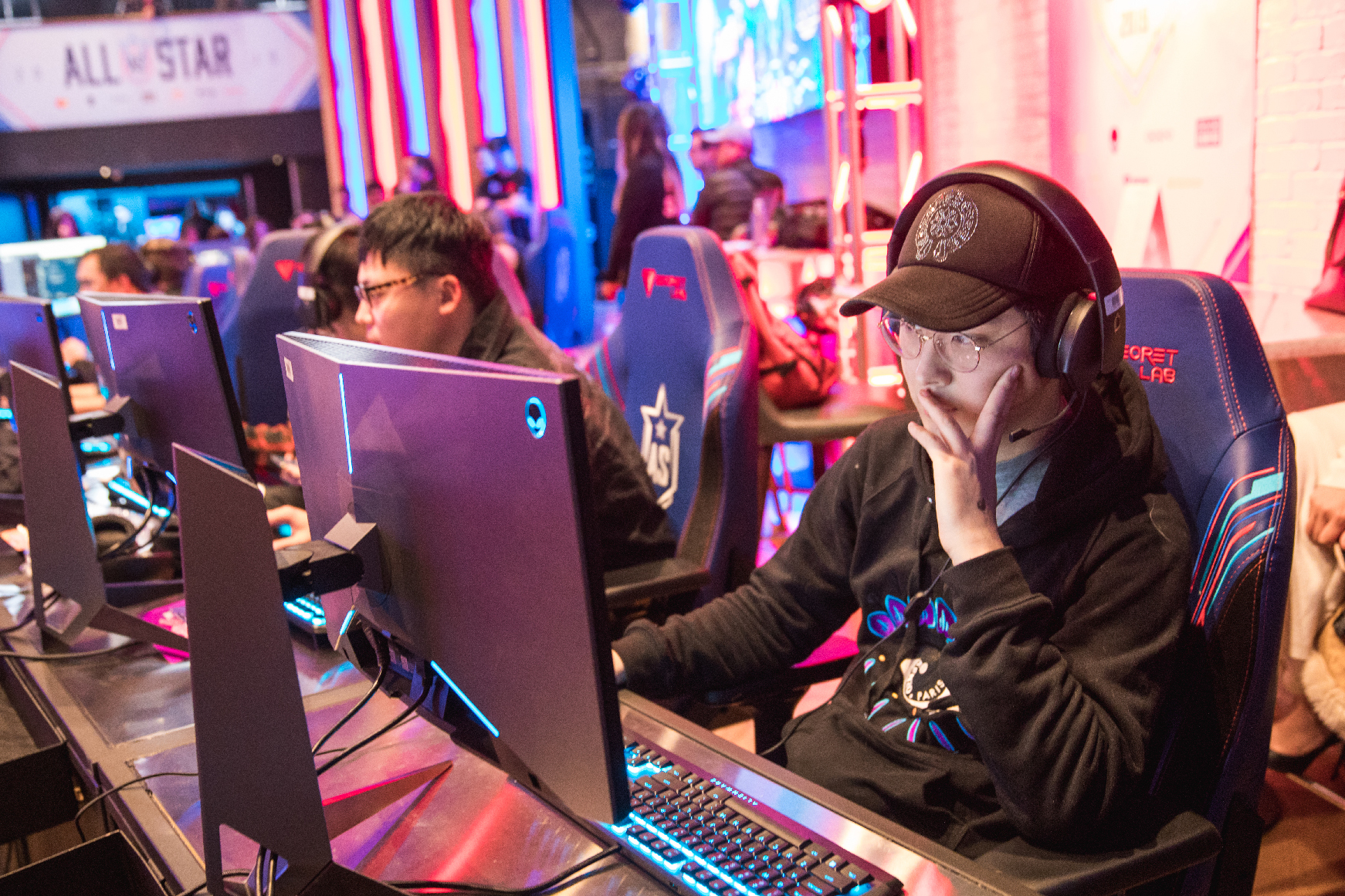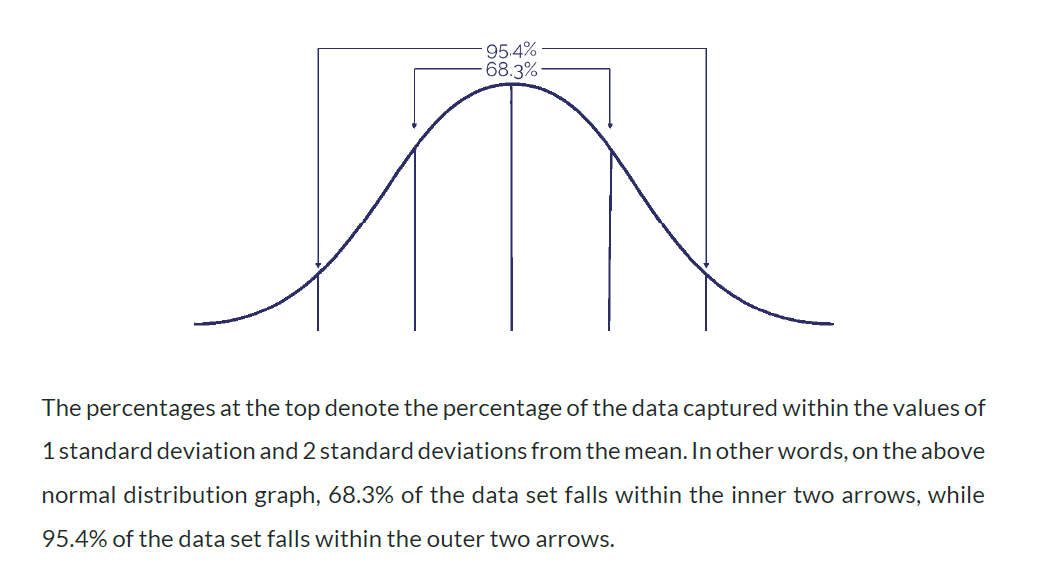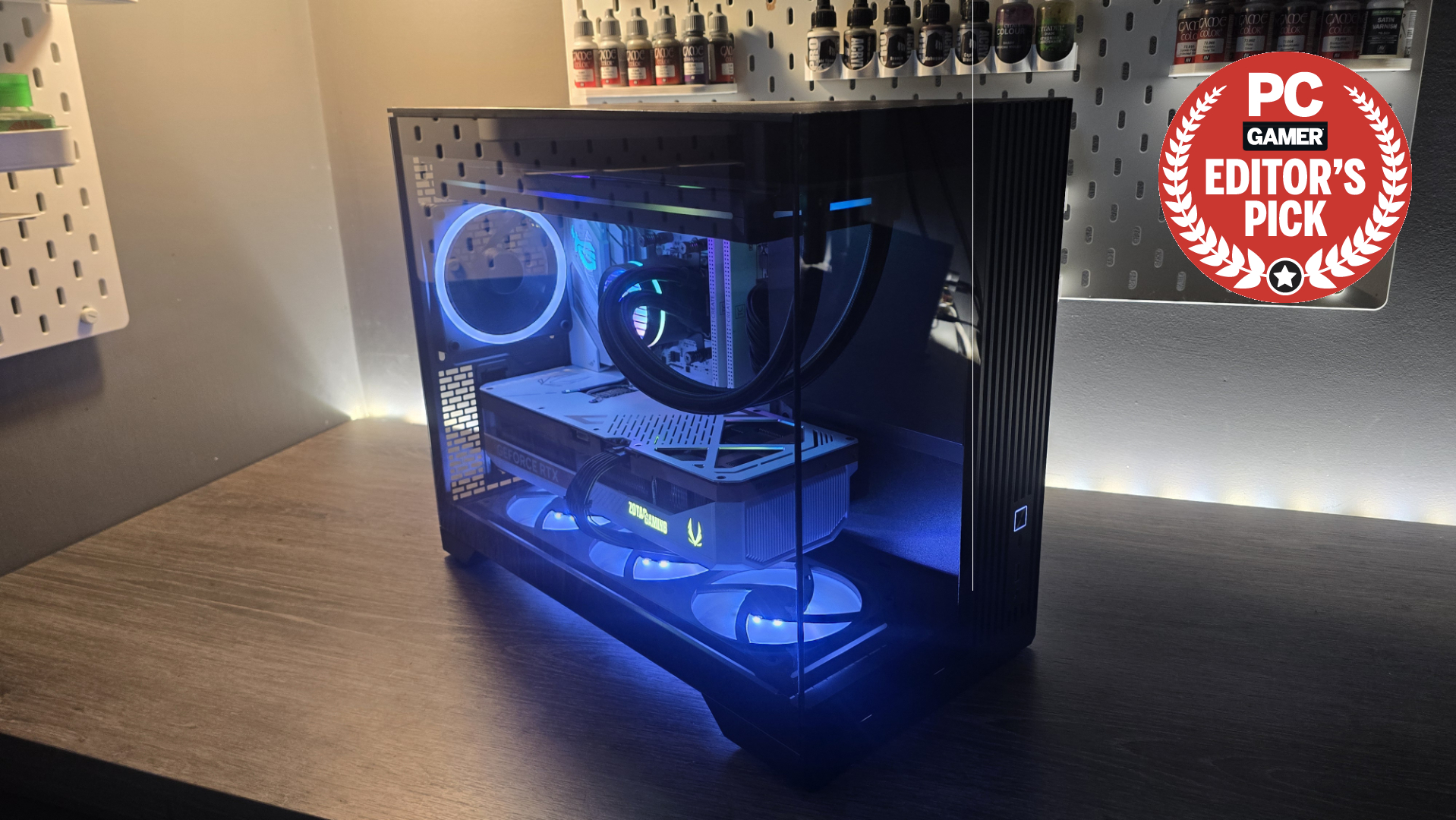A company is charging $400 for an 'esports certification exam,' and it has a lot of industry support
The Esports Certification Institute says passing its exam can help entry level job seekers get noticed by esports orgs.

Keep up to date with the most important stories and the best deals, as picked by the PC Gamer team.
You are now subscribed
Your newsletter sign-up was successful
Want to add more newsletters?
A company called the Esports Certification Institute appeared this week with an offer: Pay $299.95 (normally $399.95) to take an exam. If you pass, you'll earn a certification that tells employers in the esports industry that you understand the esports scene and grasp basic business terms, marketing concepts, and statistical problems. The ECI says that getting certified can help you get noticed and find your esports "dream job."
The certification has support from a number of esports organization CEOs and professionals, though many other observers aren't convinced that a $400 certification exam is something entry level job applicants need on their résumés.
"This makes no sense," wrote Beastcoast co-CEO Brian Anderson on Twitter. "What could possibly be on this exam where I, as a[n] org CEO, would feel like someone who passes it would be exceptionally more qualified then someone else."
Others expressed the view that the ECI and its exam are fundamentally unfair and harmful.
"Hoping this gets memed on for a minute and then rightfully disappears into obscurity," said Team Liquid digital producer Patrick Coyne. "Happy to see a lot of industry professionals speaking out against this shameless and predatory cash grab."
ECI co-founder Ryan Friedman, who previously worked at esports orgs Dignitas, Clutch, and Immortals, says his goal isn't to create a barrier to working in esports, but to remove barriers—including financial barriers. He got into the esports business through luck and an unpaid internship, he says, which isn't fair: "People ought to be paid to work." In Friedman's view, a certification exam will get qualified entry-level job applicants the attention they deserve among a huge number of other applicants, even if they don't have professional experience and can't afford to spend months or years interning.
But the industry is still young, and companies are by-and-large still building. Even today, many do not have the infrastructure nor executive will to support in-depth HR processes to vet thousands of applicants. Asa result, the space tends to overvalue previous experience.April 27, 2021
"Even today, many [esports companies] do not have the infrastructure nor executive will to support in-depth HR processes to vet thousands of applicants," wrote Friedman on Twitter. "As a result, the space tends to overvalue previous experience."
Keep up to date with the most important stories and the best deals, as picked by the PC Gamer team.
It's all about who you know, in other words, while the ECI is a "more meritocratic method for evaluating talent," Friedman says. To the argument that having $400 to spend on a test is hardly an indication of merit, Friedman says that scholarships will be offered. (Roughly how many people will be offered the exam for free hasn't been stated. I have asked.)
The ECI also points out that its exam study guide is available on a pay-what-you-want basis and that the $400 exam fee is low compared to other industry certification exams, such as the Certified Public Accountant exam. However, the CPA exam is part of the process of becoming licensed to practice public accountancy in a US jurisdiction, while there is no license required to work in esports. The ECI certification is solely a way to indicate to potential employers that you've got basic knowledge of the business—a way to get your communications or marketing résumé to the top of the pile, perhaps, if the company values the certification.
The "low" pricing didn't convince esports-focused graphic designer Owen M Roe that "diversity and inclusion," which is at the top of the ECI's mission statement, is really the company's goal. "You claim to be enabling a more meritocratic system while, in the same breath, outlining your plan to create needless institutionalized gatekeeping," wrote Roe.
In addition, to espouse the values of "diversity and inclusion" while simultaneously limiting the esports industry to a specific socioeconomic pool is just disingenuous.This is your solution? To *charge people* to work in esports? And you expect people to just be okay with it?April 27, 2021
The ECI is registered as a public benefit corporation (PBC), which is not to be confused with a non-profit charity: It is a for-profit company. The PBC designation indicates that success for the company is not just about profit, but also positive social effects that it defines for itself, such as increasing "diversity and inclusion" in esports. It allows the company to pursue that goal even where it conflicts with the basic goal of any for-profit corporation, which is to make money for shareholders, though it isn't held to some externally-defined metric for "diversity and inclusion" success, whatever that would be.
The study guide, which you can get for free on the ECI website (if you pay for it, the money is reinvested into the ECI), covers basic business administration and marketing concepts as well as general knowledge of esports. As examples, it explains what the terms "return on investment," "click-through rate," and "key performance indicator" mean, provides a brief history of esports, summarizes the relevant game genres, explains tournament formats, and provides an overview of esports business concerns, such as merchandising and player contracts. There's a section on data comprehension, too, which covers basics like how to read pie charts as well as somewhat more complicated analysis.
Hiring good talent is always hard, and it's particularly difficult in esports.
Anthony Wong
One example question asks whether it's true or false that "non-franchised leagues are typically cheaper to operate in than franchised leagues but do not have as great of underlying asset value." Another offers this problem with multiple choice answers: "A team has three players with a mean salary of $180,000. The team then signs a fourth player, and the mean salary of the players is now $200,000. What is the salary of the fourth player?" (The answer is $260,000.)
The guide and exam were produced with the help of industry advisors. Based on the number of esports org leaders on the advisory board, ECI's claim of having industry support does appear to be true. As examples, Evil Geniuses CEO Nicole LaPointe Jameson, G2 CEO Carlos Rodríguez, Gen.G CEO Chris Park, and Dignitas CEO Michael Prindiville are all on the board, along with well-known casters Dan "Frodan" Chou and Sean "Day[9]" Plott.
At least among the advisory group, there is a desire for a simple way to vet entry level esports job applicants. Cloud9 VP Donald Boyce, another advisor, wrote on Twitter that the ECI is "an objective way to cut through what Plato would call 'mere opinion'" about what it takes to work in esports.
"Hiring good talent is always hard, and it's particularly difficult in esports," wrote Jiang Hu Esports Club owner Anthony Wong, also an ECI advisor.
The ECI's other founder is Sebastian Park, who was VP and creator of Clutch Gaming back when it was owned by the Houston Rockets (where Friedman also worked for a time). Responding to today's social media criticism, Park said that he's listening, and that he believes that those who need the fee waived will be able to get it waived.
We said we wanted to hear honest feedback from the community on @EsportsCI launch and we meant it. We hear you loud and clear about the accessibility of the testtl;dr, we've been working to get people in need of asst. as many scholarships to cover all need-based coverage🧵👇April 27, 2021
"We don't want to be seen as perpetuating the same problems we're trying to fight. When the community responds, we will always listen," wrote Park. "The price was set at the lower end of [the spectrum] considering certifications in other industries and I still very much believe we'll get enough waivers for all."
On its website, the ECI says it will "offer independent sponsorships soon." Park says that unemployed people who want to break into the esports business should contact the company about scholarship opportunities.
Otherwise, the ECI is currently accepting sign-ups at a discounted rate of $299.95, which will rise to $399.95 in one week. The first exams will take place on June 19 and 20. The company says that those who pass will become ECI members, entitling them to "continuing education and networking opportunities" without further fees.

Tyler grew up in Silicon Valley during the '80s and '90s, playing games like Zork and Arkanoid on early PCs. He was later captivated by Myst, SimCity, Civilization, Command & Conquer, all the shooters they call "boomer shooters" now, and PS1 classic Bushido Blade (that's right: he had Bleem!). Tyler joined PC Gamer in 2011, and today he's focused on the site's news coverage. His hobbies include amateur boxing and adding to his 1,200-plus hours in Rocket League.


